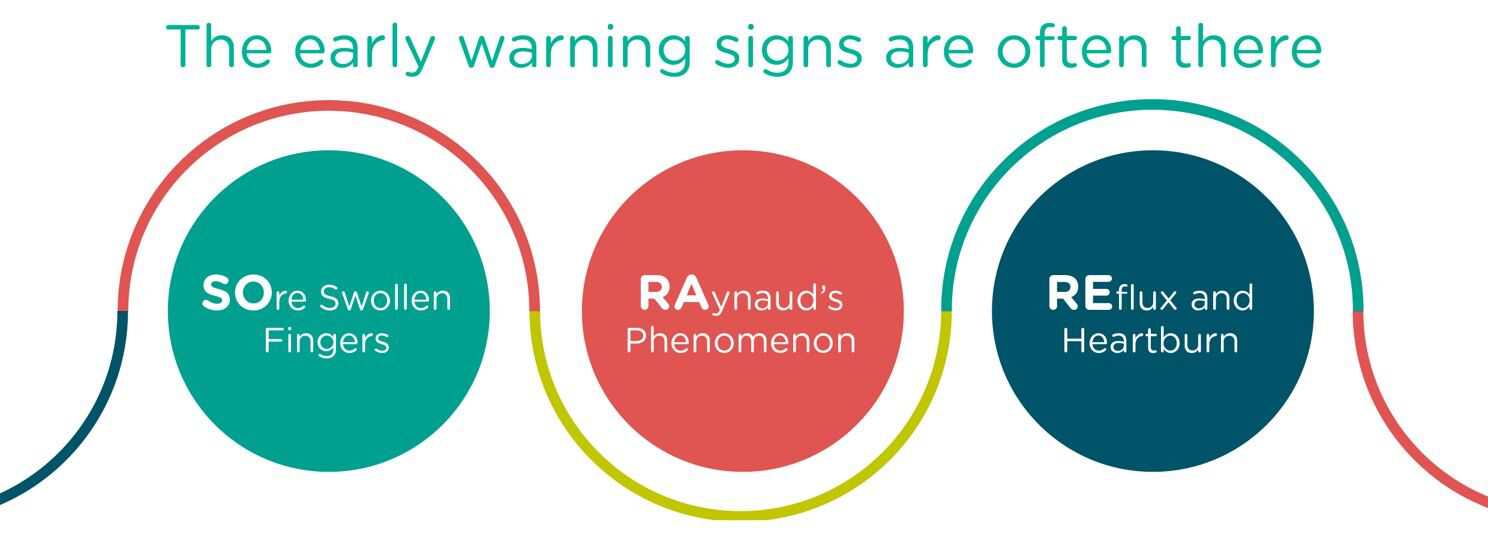Tuesday 23rd April 2024
RAIRDA Survey
Have your say on the way your services are working for your Rare Autoimmune Rheumatic Disease (RAIRD)
SRUK and Dr Francesco del Galdo worked together to raise awareness of Raynaud’s Phenomenon and diagnose people in Leeds with Raynaud's. He is now leading a study that will have huge potential to ‘predict’ who will develop scleroderma and therefore will enable earlier treatment that may be able to prevent, or even cure, the condition.
Keen eyes will remember the 'Trust Me, I'm a Doctor' BBC episode in which the first ever SRUK 'Drop In Mobile Clinic for Raynaud's Phenomenon' was a key feature. SRUK and Dr Francesco del Galdo worked together to raise awareness of Raynaud's Phenomenon and diagnose people in Leeds with the condition.
Raynaud's Phenomenon, in contrast to scleroderma, is fairly common in the UK with up to 10 million diagnosed. Although it is a common condition, a very small sub population of people with Raynaud's will exhibit more severe symptoms which could be the precursor to an autoimmune condition such as scleroderma.
While the link between Raynaud's and scleroderma has been known for a number of years, we still don't know why this link exists or what the early signs for progression into scleroderma are. This is about to change, as SRUK have just joined the Kennedy Trust in funding a novel pilot study helmed by Dr del Galdo in Leeds. Dr del Galdo is working with a group of Raynaud's patients who have signs of being at risk for developing scleroderma to determine what factors are at play.

Over 3 years, blood and skin samples will be collected from this group of people at 6-month intervals and analysed to determine the presence of biomarkers (such as antibodies and proteins) associated with scleroderma. While research has taken place into identifying biomarker association with scleroderma, this analysis has only taken place in patients who have been advanced in the progression of their condition. This study takes a novel approach by analysing within skin biopsies which of the tissue changes known to be involved in scleroderma happen before the onset of the condition.
This research will have huge potential in being able to 'predict' who will develop scleroderma and therefore will enable earlier treatment that may be able to prevent, or even cure, the condition.
In addition to the clinical samples, imaging, genomic and proteomic data collected by the study, SRUK has been granted outside funding from Microsoft in order to supplement the research with lifestyle data of the patients involved. In conjunction with one of Microsoft's leading AI partners as part of their 'AI for Good' programme, the data we plan to collect will contribute to the research; hopefully resulting in significant findings about the development of early-onset scleroderma.
If you'd like to be a part of research into scleroderma and Raynaud's then you can sign up to take part in clinical trials or you can donate today to ensure that this vital work stays active.
Tuesday 23rd April 2024
Have your say on the way your services are working for your Rare Autoimmune Rheumatic Disease (RAIRD)
Tuesday 19th March 2024
The Scleroderma and Raynaud’s UK sponsored 'Science in Medicine School Teams Prize 2024' contest is now open for entries. The contest aims to engage sixth form school students with science in medicine, and challenges students to prepare an ePoster with a novel vision on how to promote the health and well-being of individuals with Scleroderma and/or Raynaud’s. If you're interested in entering, or know someone in sixth form who might be, read on to find out more!
Wednesday 28th February 2024
As high bills continue to threaten the health of those living with the debilitating condition; SRUK is appealing to energy companies to provide financial assistance to them.